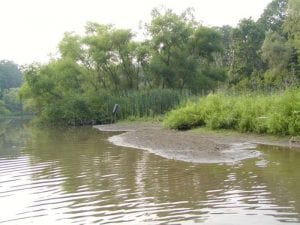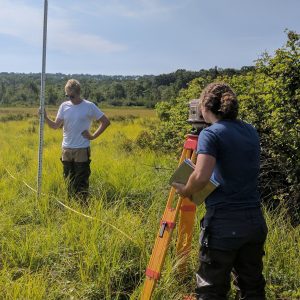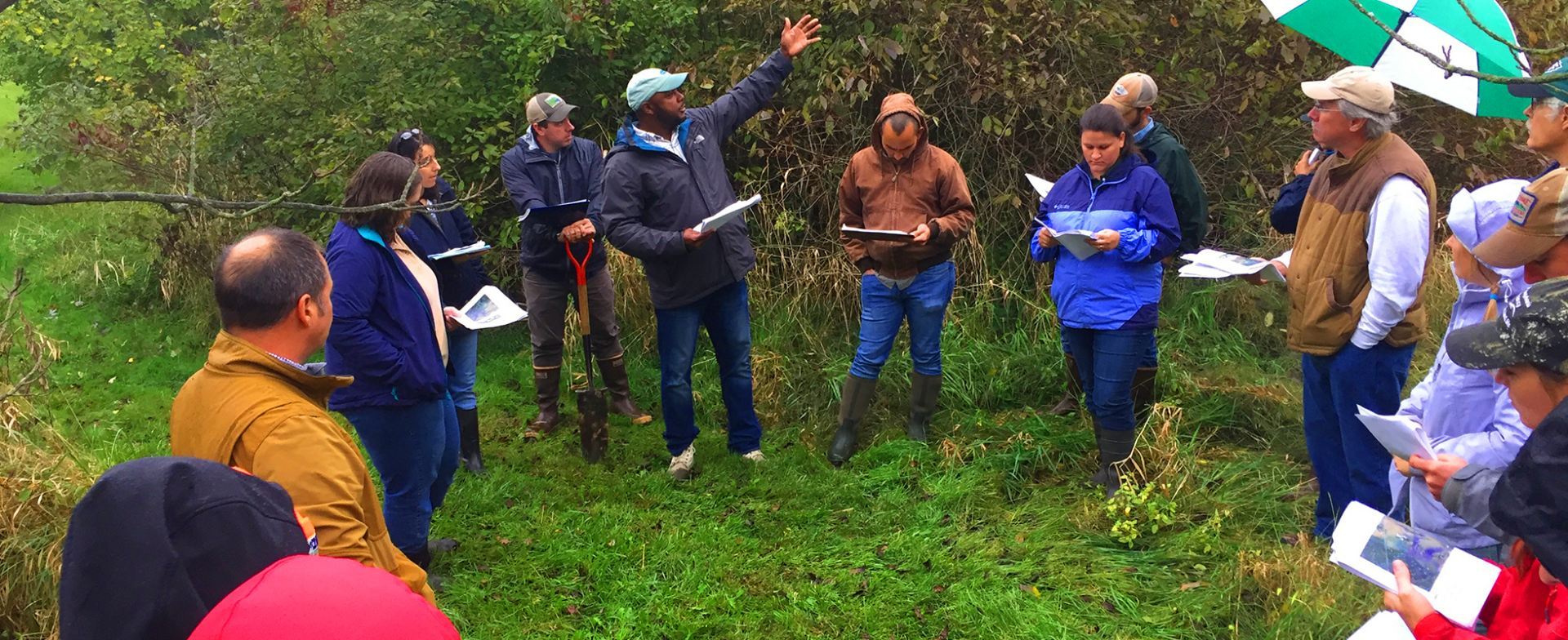Courses
The faculty of Riparia teach a variety of water-related and ecological courses within the Department of Geography and College of Earth and Mineral Sciences. Some of these courses can be applied to undergraduate minors (Geography, Watersheds and Water Resources) and certificates (Environment and Society Geography, Landscape Ecology, Physical Geography). On occasion, courses are offered online or as a hybrid resident and online course.
GEOG 431: Geography of Water Resources (3 credits)
GEOG 431 is designed for students to understand the natural processes of aquatic ecosystems, management of water resources, and threats to sustaining water quantity and quality, for all types of freshwater surface, groundwater, rivers, lakes, wetlands. This course should appeal to water resource managers, geographers, ecologists, earth scientists, planners, other environmental professionals as well as non-science majors. This course will develop awareness and appreciation of the multiple perspectives about water as a precious resource, commodity, and sometimes hazard. Students in the course will first examine water Course Justification characteristics, sources, classification systems, and aquatic ecosystems. Next, we will examine water resource management, including issues surrounding irrigation; floods and dams; provision of safe potable water; threats to water quantity and quality including human and aquatic ecosystem effects; the water economy including virtual water and water footprints; water laws and policy; institutions for water management at the global, national, regional and local scale; and issues of water conflict, security, and climate change.
GEOG 453: GIS Applications in Water Resources and Aquatic Ecosystems (3 Credits)
This course is designed to expose students to different GIS applications in water resources. It will emphasize geospatial data acquisition of hydrologic features, spatial analysis, and data representation. Students will learn through projects, lectures and hands-on computer lab exercises to investigate and solve water resource issues. Practical applications will focus on watershed and drainage network delineation, assessment of aquatic ecosystems, and surface generation methods using spatial hydrology models.
GEOG 434: Politics of the Environment
This course explores politics related to the use, transformation, valuation, and representation of the environment. Scholarship in geography and related disciplines has demonstrated that nature in general and specific environments in particular are unavoidably political. Environmental management can thus never be a purely scientific or technological challenge; it requires critical analysis of cultural, political, and economic contexts, factors, and effects. For instance, effective environmental management requires consideration of how culture shapes how we perceive and value our environments, who wins and who loses in any particular approach to environmental management, and what the relative advantages and disadvantages of competing institutional approaches to environmental management are.This course examines the development of environmental governance, with a primary focus on the United States. It explores both how various groups within society conceive of and value the environment, and multiple approaches to environmental governance and protection. It reviews the history of environmental movements and regulation, and contemporary issues and debates in environmental governance, with particular attention to the effects of institutional forms and social movements. In particular, it examines competing arguments for and against governance approaches centered on state action, market mechanisms, and prominent roles for NGOs and social movements.
GEOG xxx: To Be Added

Internships
 Riparia offers summer internships to qualified undergraduate students interested in water-related research. Interns typically assist with sampling in wetland, stream, or riparian field sites located primarily in Pennsylvania and the Mid-Atlantic or conducting data analytics. These paid internships are typically offered for 10-12 weeks from early May through mid-August.
Riparia offers summer internships to qualified undergraduate students interested in water-related research. Interns typically assist with sampling in wetland, stream, or riparian field sites located primarily in Pennsylvania and the Mid-Atlantic or conducting data analytics. These paid internships are typically offered for 10-12 weeks from early May through mid-August.
Outreach
Riparia has an outstanding reputation in the mission of Outreach and Service. Whenever possible, we respond to requests for information and assistance. These include requests from the University students and faculty, the University’s Office of the Physical Plant, federal and state agencies, non-governmental organizations, consulting firms, industries, schools, and citizens. Much of our effort has depended upon volunteerism, with a modest amount of discretionary resources used to encourage and support these activities. As water quantity and quality issues continue to come to the forefront, scientists, policy-makers and citizens will demand more refined knowledge about these essential systems, and Riparia will be able to respond to those inquiries.
